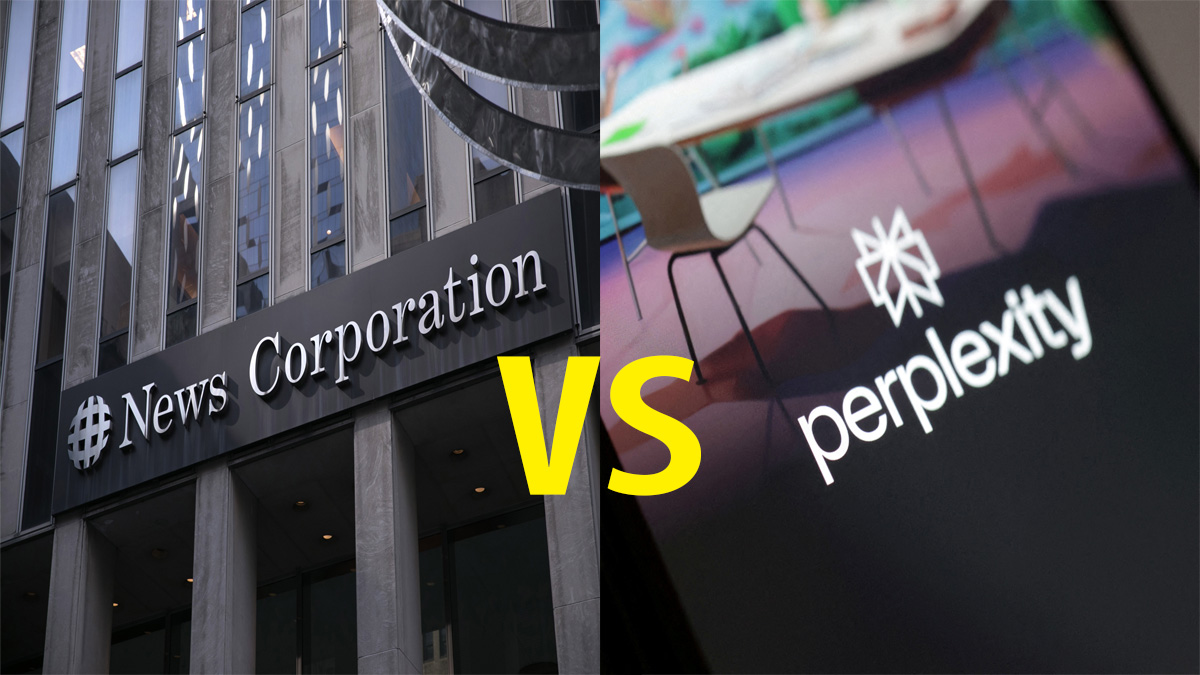News Corp sues Perplexity AI: A Clash Over Data and Content

In a bold move, Perplexity AI is standing its ground against a lawsuit filed by News Corp. The legal action claims that Perplexity has been unfairly harvesting data from Dow Jones & Co and the New York Post. According to the lawsuit, the startup allegedly posted entire articles without proper attribution, distorting facts in the process.
News Corp is seeking $150,000 for each proven infringement. They argue that Perplexity ignored their concerns when they first raised the issue. But Perplexity has fired back, asserting that these claims are riddled with inaccuracies.
In a recent blog post, Perplexity stated, “The suggestion that we never responded to outreach from News Corp is simply false.” They emphasized that they replied on the same day they were contacted. Instead of continuing discussions, they claim News Corp opted for litigation.
This situation raises important questions about data usage and content rights in the age of artificial intelligence. As startups like Perplexity AI innovate rapidly, traditional media companies are grappling with how to protect their intellectual property.
Perplexity’s defense highlights a growing tension between tech companies and established media outlets. With advancements in AI technology, the lines around content creation and data sourcing are becoming increasingly blurred.
As this legal battle unfolds, it will be crucial for both sides to navigate these complex issues carefully. The outcome could set significant precedents for how AI interacts with existing media landscapes in the future.
Startup Defends AI Engine Against Allegations of Plagiarism
In the ever-evolving world of artificial intelligence, startups often find themselves at the center of controversy. Recently, one such startup faced allegations claiming that its AI engine, Perplexity, merely regurgitates text without providing value. However, the team behind Perplexity is standing firm against these claims.
Clarifying Misunderstandings
The startup emphasizes that their AI engine is designed to enhance user experience by linking to original articles when excerpts are used. This feature not only credits the source but also enriches the user’s understanding. By providing direct access to original content, Perplexity aims to foster a culture of transparency and respect for intellectual property.
A Pattern in Legal Disputes
The legal landscape surrounding AI technology is fraught with challenges. The startup notes a troubling trend: companies filing lawsuits often make bold accusations without substantial evidence. They paint a picture of wrongdoing but fail to provide concrete examples when pressed in court.
This inconsistency raises questions about the motives behind such lawsuits. Are they genuinely concerned about intellectual property rights, or are they attempting to stifle competition? The startup believes that many of these allegations stem from misunderstanding how AI operates.
The Importance of Dialogue
Open dialogue between tech companies and traditional media can bridge gaps in understanding. As AI continues to evolve, it’s crucial for all parties involved to engage constructively rather than resorting to litigation.
Perplexity’s team remains committed to innovation while respecting existing frameworks. They invite critics and supporters alike to explore their technology firsthand before jumping to conclusions.
The Content Sharing Dilemma: A New Era for AI and Media
In a rapidly evolving digital landscape, the Perplexity crew has made waves by highlighting its existing content-sharing agreements with major publications like Time, Fortune, and Der Spiegel. This demonstrates a willingness to collaborate rather than compete. They even cheekily remind us that the Wall Street Journal, part of News Corp, recognized them as the best AI chatbot earlier this year.
However, the relationship between generative AI tools and media companies is fraught with tension. Currently, there are around three dozen lawsuits from various media organizations against these AI technologies. The underlying message is clear: many in traditional media wish this technology didn’t exist.
These companies seem to prefer a world where publicly reported facts are tightly controlled. They want to maintain ownership over information that should be accessible to all. In their view, anyone using these facts should pay a toll—essentially a fee for accessing knowledge that belongs in the public domain.
This raises critical questions about the future of information sharing. Should access to publicly available facts come with strings attached? Or should we embrace a more open model that allows innovation while respecting original sources?
As we navigate this complex landscape, it’s essential for both sides—media companies and AI developers—to find common ground. Collaboration could lead to new opportunities for creativity and growth without stifling innovation or access to information.
The conversation is just beginning. Will traditional media adapt, or will they cling to outdated models? Only time will tell how this intricate dance between AI and journalism unfolds.
News Corp Declined to Comment on Perplexity’s Claims
In a recent development, News Corp has chosen not to respond to the claims made by Perplexity. This silence raises questions and speculation in the media landscape.
Perplexity, known for its innovative approach in the tech industry, has made assertions that could impact various stakeholders. However, without an official comment from News Corp, the situation remains murky.
Why would a major player like News Corp opt for silence? There are several possibilities. They might be assessing the claims internally or preparing a more comprehensive response. Alternatively, they could be choosing to avoid escalating tensions.
As the story unfolds, observers will be keenly watching for any shifts in strategy from News Corp. Will they eventually address Perplexity’s claims? Or will they maintain their current stance?
For now, we await clarity in this intriguing scenario. The implications of these claims could ripple through both organizations and their respective industries.
In conclusion, while News Corp’s decision not to comment may seem strategic at first glance, it leaves many questions unanswered. Stakeholders deserve clarity and transparency—qualities that build trust and credibility in today’s fast-paced market.







